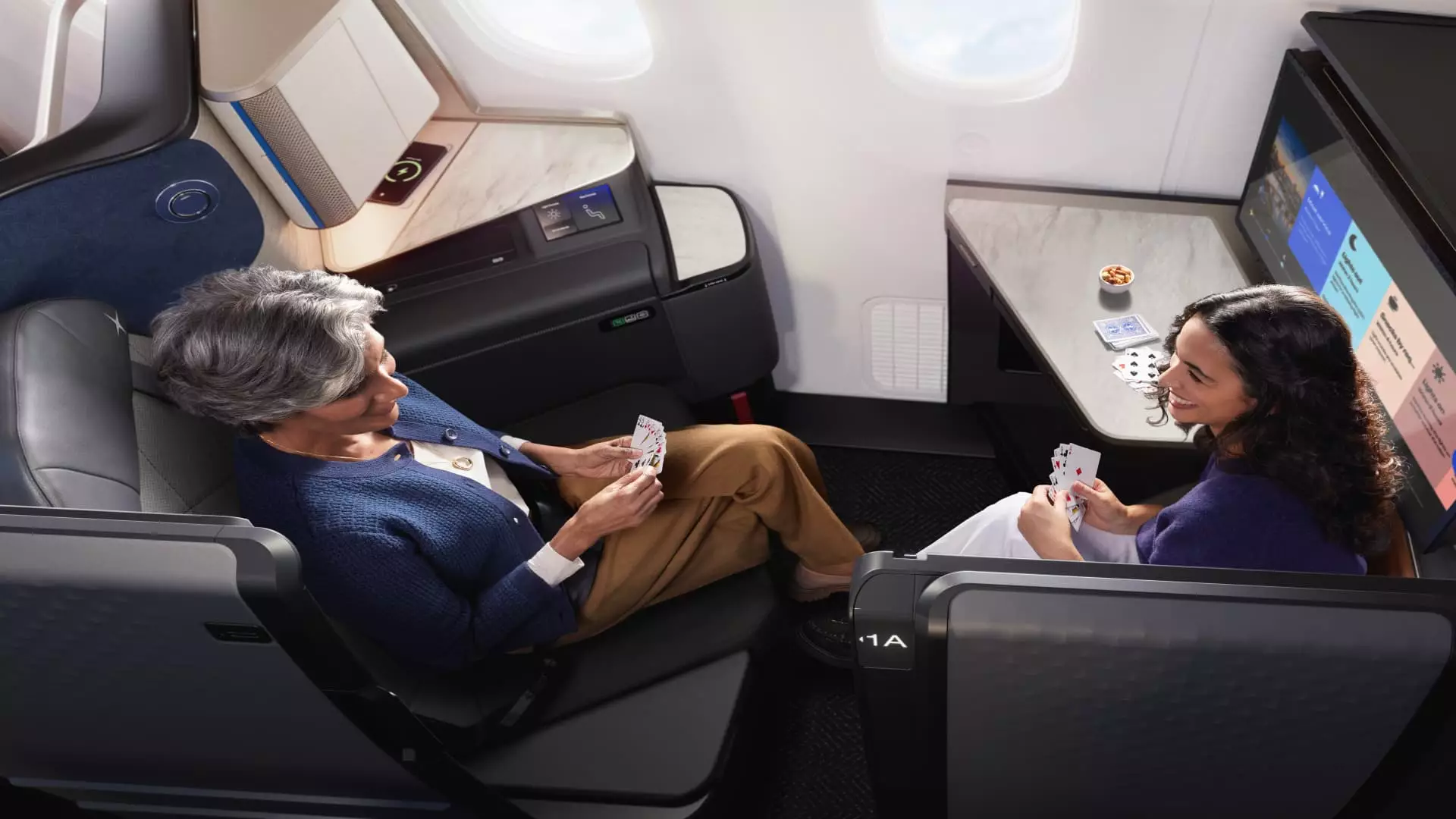In a time when air travel should be an emblem of convenience and luxury, U.S. airlines are locked in a fierce battle for the business-class market, prioritizing extravagant amenities over passenger satisfaction. Picture a cabin adorned with sliding doors, plush bedding, and complimentary caviar—sounds lavish, right? Yet amidst this ostentatious display of wealth, there remains a glaring issue: the systematic erosion of class in air travel. The so-called upgrades at American Airlines, United Airlines, and other carriers may dazzle on the surface, but they may ultimately obscure fundamental failings in customer focus and overall airline service.
As American Airlines readies its premium “suites” for launch, the question arises: is such opulence necessary or merely a marketing ploy? Boasting features like a “trinket tray” and wireless charging options, these cabins are designed to lure business travelers willing to spend exorbitant sums on tickets upwards of $5,000. With American declaring that its new suites will give travelers 42% more “living area,” one is compelled to wonder—does the additional space lead to heightened comfort or merely accentuate the grotesque disparity between first-class passengers and those relegated to the back of the plane?
The Illusion of Choice
Flights have become a battleground, pitting airlines against one another in a race to out-luxury each other. United Airlines is similarly obsessed with one-upping its competitors by introducing “Polaris Studios,” a purportedly enhanced seating option that offers even more space and a visitor-friendly ottoman. But while these offerings are branded as luxurious, they prompt healthily skeptical inquiries about the authenticity of such “choice.”
Airline executives claim these incremental upgrades are aimed at meeting consumer demands, but the marketing rhetoric often rings hollow. Many travelers are left feeling as if they are merely pawns in a game where airlines prioritize profit margins over genuine comfort. With exorbitant prices like $5,747 for a ticket to London, one can’t help but feel that flying has transformed into a spectacle meant to enrich corporate wallets, rather than enhance the passenger experience. Amid the luxurious offerings, the declining quality of economy class remains a sore point, with many travelers opting for cheaper seats while the premium market is saturated with high-rolling amenities.
Perception of Value vs. Actual Experience
The airlines’ ability to create a premium image does not always translate into an improved experience. While it’s true that Delta Air Lines has already rolled out its own suite of sliding doors and lounges for elite travelers, this rarity does not absolve the industry from the pitfalls of complacency. It raises an essential question: how much luxury can diminish the growing discomfort felt in the economy class? The fact that airlines are willing to invest billions in luxurious cabins while passengers wallow in cramped, uncomfortable seats speaks volumes about the neglect experienced in lower classes of travel.
Companies seem to be portraying an image of improved service with “high-touch” amenities like noise-canceling headphones and upgraded meal options. Still, let us remember that at the core of air travel should be simple human decency and respect for all passengers. The advances in premium offerings only serve to underscore the inadequacies of economy. Instead of enhancing the overall experience for all travelers, airlines have chosen to cherry-pick their clientele and focus all their attention on those willing to break the bank for a first-rate experience.
The Discrepancy Between Prestige and Quality
Even as passengers pay top dollar for luxury experiences, a number of systematic issues lurk in the shadows. The fact that wealthier individuals are often insulated from economic downturns provides airlines with false confidence, leading to a misguided adherence to the belief that premium offerings will always find a willing audience. As this trend continues, airlines may risk alienating the very customers who can’t afford to indulge in lavish upgrades.
In focusing solely on premium travelers, airlines may inadvertently stifle innovation for broader improvements throughout their services. The missed opportunity to enhance economy class at the same pace as their business-class counterparts sends a clear message: not all passengers deserve a compassionate and dignified experience while flying.
As we witness the rise of over-the-top amenities and the steady ascent of premium offerings, it becomes all too clear that the airlines’ priorities are skewed. Perhaps it’s time for consumers to demand better, not just for the elite few but for everyone embarking on what should be a shared journey through the skies.


Leave a Reply